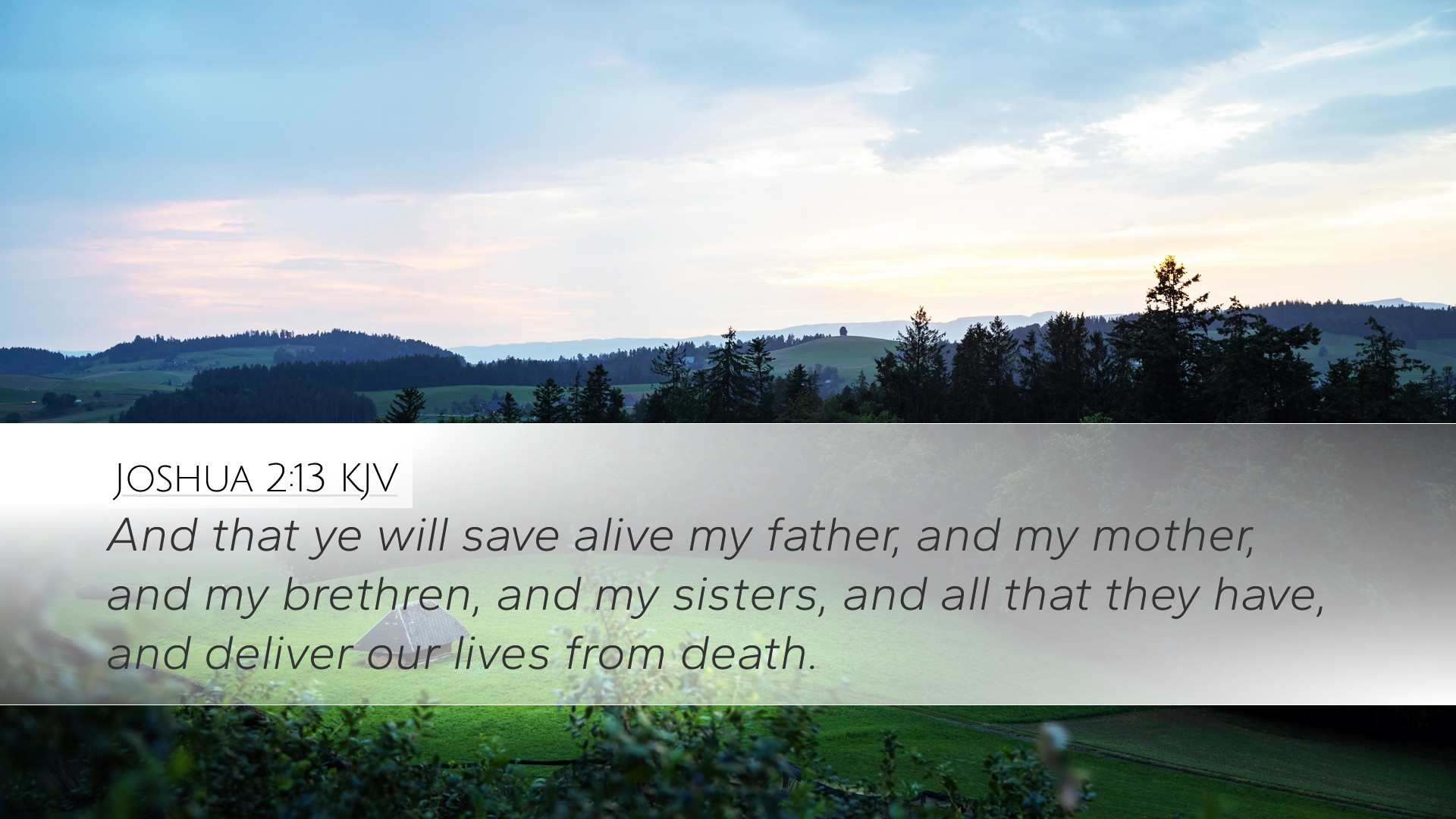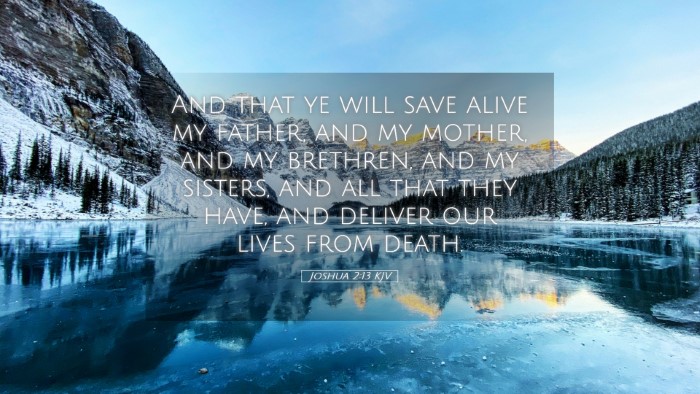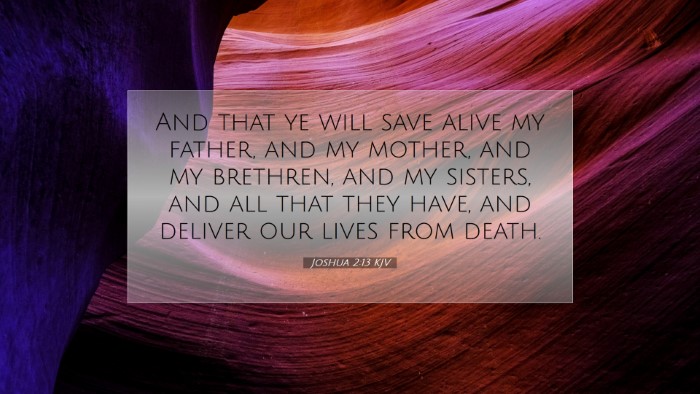Old Testament
Genesis Exodus Leviticus Numbers Deuteronomy Joshua Judges Ruth 1 Samuel 2 Samuel 1 Kings 2 Kings 1 Chronicles 2 Chronicles Ezra Nehemiah Esther Job Psalms Proverbs Ecclesiastes Song of Solomon Isaiah Jeremiah Lamentations Ezekiel Daniel Hosea Joel Amos Obadiah Jonah Micah Nahum Habakkuk Zephaniah Haggai Zechariah MalachiJoshua 2:13
Joshua 2:13 KJV
And that ye will save alive my father, and my mother, and my brethren, and my sisters, and all that they have, and deliver our lives from death.
Joshua 2:13 Bible Commentary
Commentary on Joshua 2:13
Joshua 2:13 states: "And that ye will save alive my father, and my mother, and my brethren, and my sisters, and all that they have, and deliver our lives from death." This verse encapsulates a powerful moment of faith, protection, and covenant between Rahab and the Israelite spies. This commentary draws from various public domain sources to provide insights that are meaningful for pastors, students, theologians, and Bible scholars.
Contextual Background
To fully understand this verse, one must consider the broader narrative in the Book of Joshua. The chapter introduces Rahab, a harlot in Jericho, who offers refuge to the Israelite spies sent by Joshua to scout the city. Rahab’s actions represent a profound turning point; her faith in the God of Israel contrasts sharply with the impending doom facing her own people.
Rahab's Plea for Salvation
In verse 13, Rahab’s appeal is both personal and communal. As highlighted in Matthew Henry's Commentary, her request signifies a deep awareness of the consequences that await her family if the city is besieged. Her desire to save her family reflects the profound love and responsibility she feels toward them. This is not merely a call for physical salvation but an act of faith in God's mercy and protection.
Albert Barnes notes that Rahab’s willingness to act on behalf of her family indicates a remarkable courage and decisiveness. She recognizes the impending judgment of God upon Jericho and takes proactive steps to secure the safety of her loved ones. This shows an understanding of not just her own precarious situation but also the larger theological implications of God’s impending judgment.
Theological Implications
The request made by Rahab raises significant theological questions regarding mercy, judgment, and redemption. Adam Clarke remarks on the inclusivity of Rahab’s plea: she seeks deliverance for her entire family. This speaks to the broader narrative of salvation in the Scriptures, where God's mercy extends beyond individual faith to encompass the families and communities of believers.
- Faith in Action: Rahab's faith is demonstrated through her actions. She risks her life to conceal the spies, and her intercession for her family signifies a faith that compels action.
- The Covenant of Mercy: Her request illustrates a foundational principle in the biblical narrative: the God of Israel is also a God of compassion who honors faith and protects those who trust in Him.
- Type of Christ: Rahab, as a figure who stands between judgment and salvation, typifies the mediatory role of Christ. Just as she sought salvation for her household, so does Christ advocate for His own.
Practical Applications
For pastors and theologians, the lessons drawn from Rahab's plea are manifold:
- The Responsibility of Faith: Believers are called not just to faith for themselves but to act as intercessors for their families and communities. Rahab exemplifies the importance of seeking the salvation of loved ones.
- Embracing the Outsider: Rahab was a Canaanite, and her inclusion in the plan of God highlights the universal scope of salvation. It challenges believers to look beyond societal boundaries when sharing the Gospel.
- The Power of Testimony: Rahab's story serves as a profound testimony of redemption. Her faith led to her inclusion in the genealogy of Christ, reminding us that anyone can be used for God's glory regardless of past failures.
Conclusion
Joshua 2:13 encapsulates a rich interplay of themes relevant not only to the historical context of Israel's conquest of Canaan but also to the theological truths about redemption, faith, and God's mercy. The act of Rahab, from her faith-filled plea for her family to her risk-taking actions, serves as an enduring reminder for believers today to advocate for those they love and trust in the saving power of God. The narrative invites us to reflect on our own faith journeys and how we can represent God's mercy in a world facing judgment.


